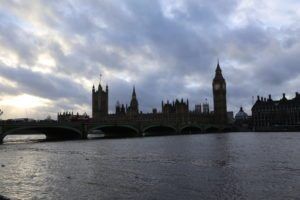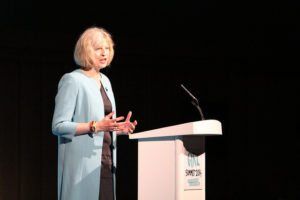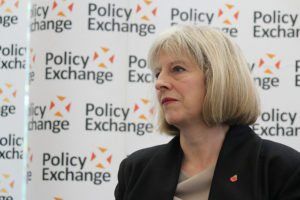News
DECC and Davey brush off Lord Lawson’s break-up suggestion
The Department of Energy and Climate Change has rejected former energy secretary Lord Lawson’s calls for it to end, saying it still has challenges to tackle. Alex Blackburne reports.
Staunch climate change denier, and former energy secretary, Lord Lawson, has added to the controversy surrounding his beliefs by claiming the Department of Energy and Climate Change (DECC) should be ended.
 The Department of Energy and Climate Change has rejected former energy secretary Lord Lawson’s calls for it to end, saying it still has challenges to tackle. Alex Blackburne reports.
The Department of Energy and Climate Change has rejected former energy secretary Lord Lawson’s calls for it to end, saying it still has challenges to tackle. Alex Blackburne reports.
Staunch climate change denier, and former energy secretary, Lord Lawson, has added to the controversy surrounding his beliefs by claiming the Department of Energy and Climate Change (DECC) should be ended.
In a letter published in the Financial Times, the chairman of the Global Warming Policy Foundation gave newly appointed energy secretary, Ed Davey, food for thought, by pointing out an apparent “opportunity to enter the history books”.
Lord Lawson said Davey could be “the only minister to use his position to abolish [the DECC] for the wider public good”.
His criticism of the department continues, as he describes how “the yoking together of energy and climate change has given this country the worst energy policy for a generation – bad for the economy, bad for industry, bad for the taxpayer and bad for the consumer”.
Lord Lawson concludes with a solution to go with his suggestion.
“The time has come to put responsibility for climate change policy back into the environment department, where it properly belongs”, he writes, “and to put energy policy into the Department for Business, Innovation and Skills from where Mr Davey has just emerged”.
In response, the DECC brushed off any proposal of such an abolishment.
A spokesman said, “DECC was created in 2008 to bring climate change and energy policy into one department.
“UK needs to secure clean, safe, affordable energy to heat and power its homes and businesses.
“Creating a low-carbon and resource efficient world means making major structural changes to the way we work and live, including how we source, manage and use our energy.
“The Department exists to take the lead in tackling these challenges”.
Upon receiving the energy secretary role following Chris Huhne’s resignation, Davey said he planned to continue his predecessor’s “fabulous work” in attempting to realise a green economy, and certainly gave no hint whatsoever about a DECC break-up.
“I’m determined to work to follow on Chris’ priorities, the Coalition’s priorities and to make them my priorities”, he said last Friday.
“I want us to have a green economy, with the green jobs and investment we need to help grow our economy”.
Being a climate change denier, it’s obvious why Lord Lawson disagrees with the pairing of energy and climate change departments.
As Blue & Green Tomorrow continues to show, renewable energy should be the backbone of our economy if we are going to beat global warming.
You can help achieve this by investing your money in sustainable places. Ask your financial adviser about this, or fill in our online form and we’ll connect you with a specialist ethical adviser.
If you’re still unsure about the subject, check our site next week, when we’ll be publishing an in-depth report, The Rise of Renewable Energy.
Picture source: DECC


 Environment12 months ago
Environment12 months agoAre Polymer Banknotes: an Eco-Friendly Trend or a Groundswell?

 Features11 months ago
Features11 months agoEco-Friendly Cryptocurrencies: Sustainable Investment Choices

 Features12 months ago
Features12 months agoEco-Friendly Crypto Traders Must Find the Right Exchange

 Energy11 months ago
Energy11 months agoThe Growing Role of Solar Panels in Ireland’s Energy Future





























